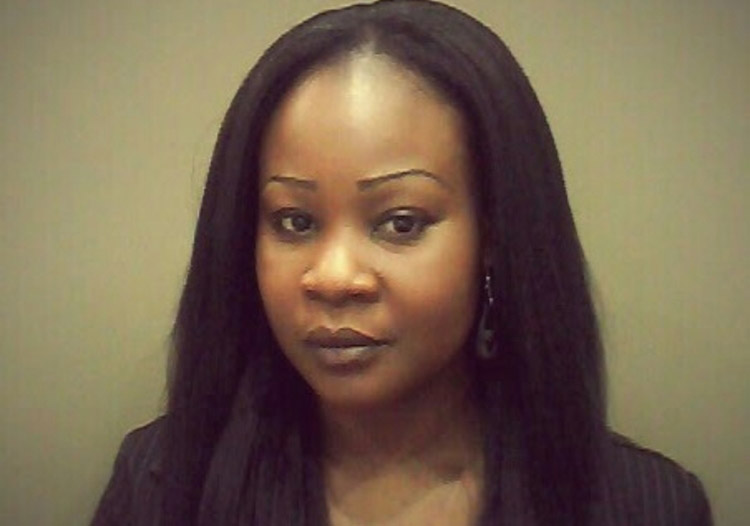Words that sing, feelings that speak

 Beaven Tapureta —
Beaven Tapureta —
If there is anyone, particularly a woman, who has been thinking of quitting the “struggle of life” they better read Catherine Magodo-Mutukwa’s self-published “Rendition of the Soul” (2017), a poetry anthology that has words that sing and emotions that speak.
Edited by senior writer David Mungoshi, “Rendition of the Soul” is one such collection of poems which convinces you that poetry will “re-ignite your passion so you can/ dream again”.
It is, on another level, a celebration of having discovered the oasis of inspiration within oneself, the urge to speak through writing (and reading) poetry which not only serves as an outlet or voice for pent-up emotions but also which sympathises with “those, whose voices had been/ stilled but not quietened”.
Mutukwa’s ‘chronic obsession’ with poetry is everywhere to see, especially if you follow her on social media and read her in other published anthologies. She breathes and speaks poetry.
In a recent interview, she told Bookshelf that the power of her poetry resides in its appeal to different emotions.
“I guess what they say is true, poetry is first and foremost an expression of emotion. It engages one’s feelings so it’s safe to say for me it is my safe haven whether I am reading or writing it. I lose myself somewhere between the lines and that is my happy place,” said Mutukwa.
Her form of poetry, described by the editor as “an eclectic mix of poetry and prose poetry”, beckons us to look beneath the black and white colour of words and savour the intrinsic value of the words.
Asked why the collection carries the tag “poetry and prose poetry”, she said, “Although both (poetry and prose poetry) are well structured poetry is often written with line breaks to indicate a change within the pattern whereas in prose the emphasis is on the meaning of the words without much decoration and the ideas which are contained in sentences are mostly arranged into paragraphs.”
Describe it as poetry or prose poetry, that does not matter as for now, for what will draw the reader to this anthology is the unwavering voice telling in lyrical episodes tales of different broken lives of women, the girl child and individuals caught up in the web of “searching” which leads them nowhere but far deep into further “cobwebs” of distress, resilience, hope and sometimes, victory.
Throughout the anthology, the seemingly inexpressible feelings of broken women are captured in words that resound like rapid thudding of hooves and sometimes they are as soft as a romantic waterfall.
Mutukwa’s forte has been the plight of women especially in her home country Zimbabwe. She has another work in progress titled “Broken Vessels”, a book based on true events.
Mutukwa said “Broken Vessels” tells the agonies of a young girl named Vimbai who drops out of school after her father, the sole breadwinner, dies. An aunt proposes to take Vimbai and to stay with her but the aunt has her own ulterior reason – to marry Vimbai off to an older man.
What follows is a series of emotional, mental and physical abuse which extends to Vimbai’s daughter. Mutukwa is weaving the story of Vimbai and her daughter into one.
“It’s my mission and passion to bring awareness and to empower women and girl children,” she said.
The poems such as “Not Just Words” and “From my Heart to You” in her latest anthology has the personae refusing surface interpretation of her poetry and asserts the poet’s spiritual resolve or function to “infuse words with empathy and compassion”.
The anguish and resilience of abused women runs through poems such as “Forsaken”, “History will Remember” which is about a rape victim, and “Tambudzai which deals with the plight of a rural wife. Other poems are vivid, autobiographical elegies and reminiscences of moments shared with Mother and Grandmother, the two heroic women from which the personae draw wisdom and great motivation to live and conquer. “Listen” and “I See You” recreates grandma’s character of a storyteller and guru.
However, not all is gloom as the poet also gives a futuristic taste of the joy of women who have conquered in poems like “Focused”, “Her Name is Confidence” and “Reflection”.
Mutukwa lives in South Africa and the poems about missing home and being missed at home are like two places/individuals dialoguing. Migration, with its positive and negative effects, will always be with us as people seek various opportunities in different countries or the global village.
In the poem “Come Home Child” one feels the love of those whom the migrant child left at home, and then immediately in the poem “Coming Home” the child, in a far country, responds, promising to come home. Next in the poem “Home at Last” there is celebration as the child has finally fulfilled the homecoming promise.
Another vital element in the anthology is the involvement of two fellow writers who in their different capacities helped the poet. Although David Mungoshi, author of NAMA award-winning novel “The Fading Sun” (2009) did the editing of the anthology, he also must have been surprised to note that poet Mutukwa is also familiar with his poetry in her literary background. In the anthology, the poem simply titled “I” is a response to David Mungoshi’s poem “Nobody Knows Why She Weeps” published last year on Hello Poetry. Another multi-skilled writer Phillip Kundeni Chidavaenzi also did the design and layout of the anthology.
Catherine Magodo-Mutukwa is the author of “Back To The Hills” (2011, Diaspora Publishers), “Reflections” (2013, Penfeatherzmedia), “Silent Cries/The Violated Speak” (Penfeatherzmedia, 2015). She has contributed poems in various anthologies such as “We Are One: With or Without” (2013, Diaspora Publishers), “Black Stars: The Beginning” (2014, Penfeatherzmedia), “Life” (2015, Penfeatherzmedia) and “Zimbolicious Poetry” (2016, Royalty Publishing, USA).
Bookshelf









Comments